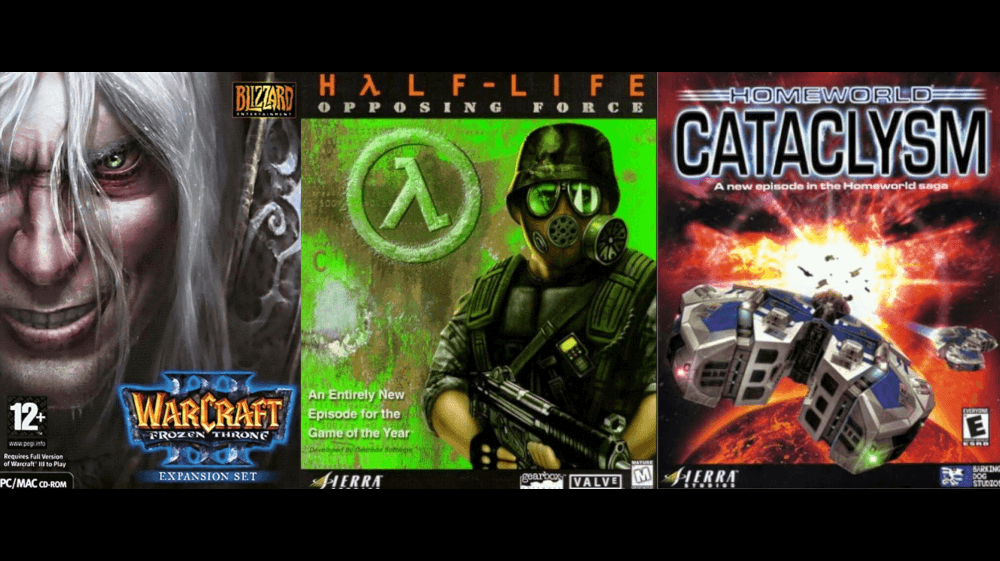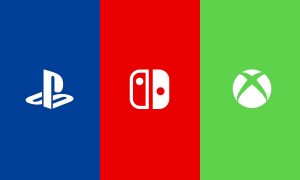 I was recently asked “What is your favorite DLC?” and I immediately jumped back to some of my favorite expansions like Warcraft 3: The Frozen Throne, Half-Life: Opposing Force, and Homeworld: Cataclysm. I then noticed many other people were referencing more modern DLC for games like Assassin’s Creed and Dragon’s Age. It dawned on me that, despite the overlap, much of the DLC released for games in the last ten years doesn’t compare to the robust nature of the expansions for games before that period.
I was recently asked “What is your favorite DLC?” and I immediately jumped back to some of my favorite expansions like Warcraft 3: The Frozen Throne, Half-Life: Opposing Force, and Homeworld: Cataclysm. I then noticed many other people were referencing more modern DLC for games like Assassin’s Creed and Dragon’s Age. It dawned on me that, despite the overlap, much of the DLC released for games in the last ten years doesn’t compare to the robust nature of the expansions for games before that period.
I still remember the exciting moment of loading up Opposing Force and witnessing that wild opening with you flying in on an Osprey with your squad ready to clean up the mess those crazy Black Mesa scientists had kicked off. Then suddenly you’re getting shot down and next thing you know, you’re right in the heart of an alien invasion. Now you’re fighting for your life just like Gordon Freeman and even manage to cross his path just for a moment – which I thought was incredible at the time. It was fascinating having a complete experience in the same game world but from a different perspective. That is something I don’t encounter very often these days.
In the 90s and early 2000s, expansions were commonplace, though almost exclusively for PC games. Console games usually existed entirely on ROM devices (like cartridges and CDs) so the idea of expanding on them wasn’t necessarily feasible. On PC, however, if you bought and installed StarCraft, you could get StarCraft: Brood War to add to the game making use of the same game engine and many assets, but adding new units and a completely new campaign to be enjoyed.
With the massive growth of the internet and higher bandwidth connections, it became possible to download these expansions. Not long after this, consoles joined the fun of having games installed on hard drives and using internet connectivity to both update them and add downloadable content. This opened up a new world of gaming. Not only for changing games post-launch, a practice that was once a burden involving physical media but for allowing companies to produce and sell content that may not be worthy of a full expansion. This started our modern era of DLC.
One of the most notable kicking off points for this was the inclusion of horse armor in Elder Scrolls IV: Oblivion. While Oblivion did have an expansion (The Shivering Isles) and many games kept up the tradition – especially on PC – there was a shift. There are some companies, like Firaxis, that continue making hearty expansions for their games while also including a broad spectrum of smaller DLC. This allows them to make games like Civilization and XCOM grow for months and years after their release while simultaneously keeping revenue coming into the company.
However, as we look at the modern gaming industry and its trend toward monetizing games through multiplayer by selling cosmetics and boosts rather than anything resembling expansions, the evidence of change becomes obvious. The days of expansions that feel like they could be independent games are numbered. It is more likely the case that publishers would try to release a new iteration of a game rather than an expansion for an existing one since it would be easier to sell to a new and broader audience.
I believe most people have found more value in expansions than what is typically released as DLC these days, and I hope the developers still committed to releasing them won’t ignore that value. Yet, I have a feeling my favorite expansions will stay in the past with games like Warcraft and Half-Life, even if that reverence may be tinged with nostalgia.
So that leaves the question, what’s your favorite DLC? Would you call it an expansion?


